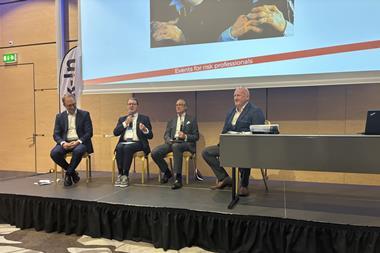US construction firms told to invest more in leadership to combat rising fatalities and shortages in skilled workers – Marsh
The construction industry must strengthen its leadership culture in order to address shortages of skilled workers and improve safety measures, Marsh has said.
The latest Marsh Risk Management Research (MRMR) briefing Building Safety and Leadership in the Construction Industry revealed a spike in construction-related fatalities but an alarming shortage in skilled workers.
The report, which focuses on the US industry, found that private sector construction deaths increased by 5% in 2012, bringing the total of deaths to 775. This marks the first annual increase in work-related fatalities since 2006.
Falls, slips and trips remain the largest cause of construction-related fatalities, accounting for 36% of all deaths experienced in 2012.
The report said that a shortage of experienced construction workers has resulted in many unskilled members of staff promoted to supervisory roles much faster than before.
Marsh has said that this trend has exacerbated numerous problems – many new managers and supervisors are unfamiliar with the industry’s changing rules on safety and risk management.
Speaking after the publication of the report, construction safety specialist John Moore said: “In the US, the construction industry is going through a major change due to the recent economic crisis. Construction activity slowed down, but all of a sudden things are starting to happen again. But contractors are finding that the skilled labour is not there like it once was.”
Moore said that the construction firms should incorporate a leadership culture throughout the organisation that encompasses engagement, training, and measurement of leadership efforts as a means for addressing the lack of skilled workers.
He said: “Engagement is a key aspect of leadership on multiple levels. Leadership itself is the craft of engaging employees in such a way that is beneficial to the organisation, but the key to harnessing this ability lie deeper in the engagement of managers and supervisors. Just because they are promoted up through the ranks doesn’t necessarily mean they have the engaged passion to be an effective leader.
“Once managers and supervisors are engaged, education becomes a very important part of leadership development. There are so many different facets to leadership that you could train for years and not address all of them, from goal setting, mentoring to effectively establishing accountability.”
Moore also believes many firms in the sector neglect their responsibility to train their staff, stating that there are other leadership development resources available that companies and leaders-in-training could utilise.
He said providing employees’ access to books, films, and other resources on leadership would go a long way in enhancing people skills, in reducing fatalities and costs.



















No comments yet